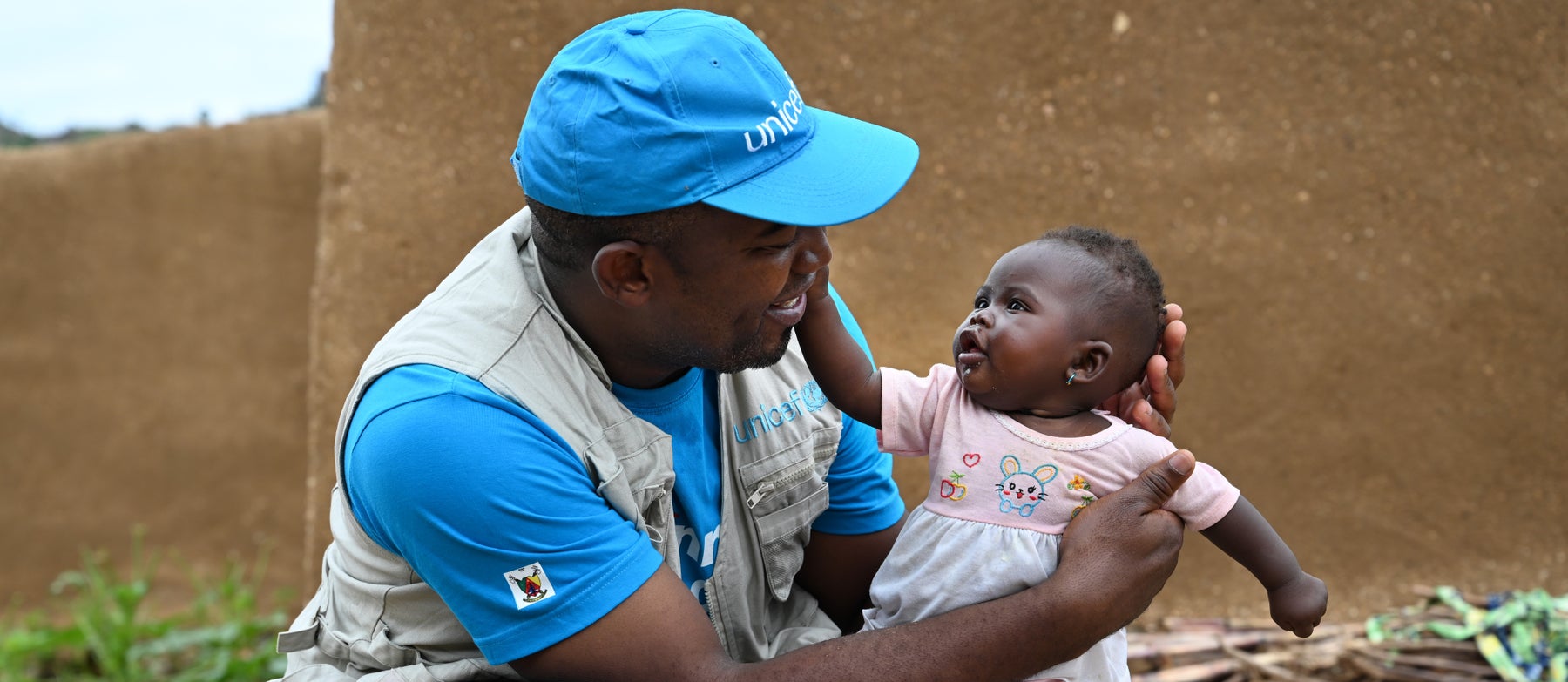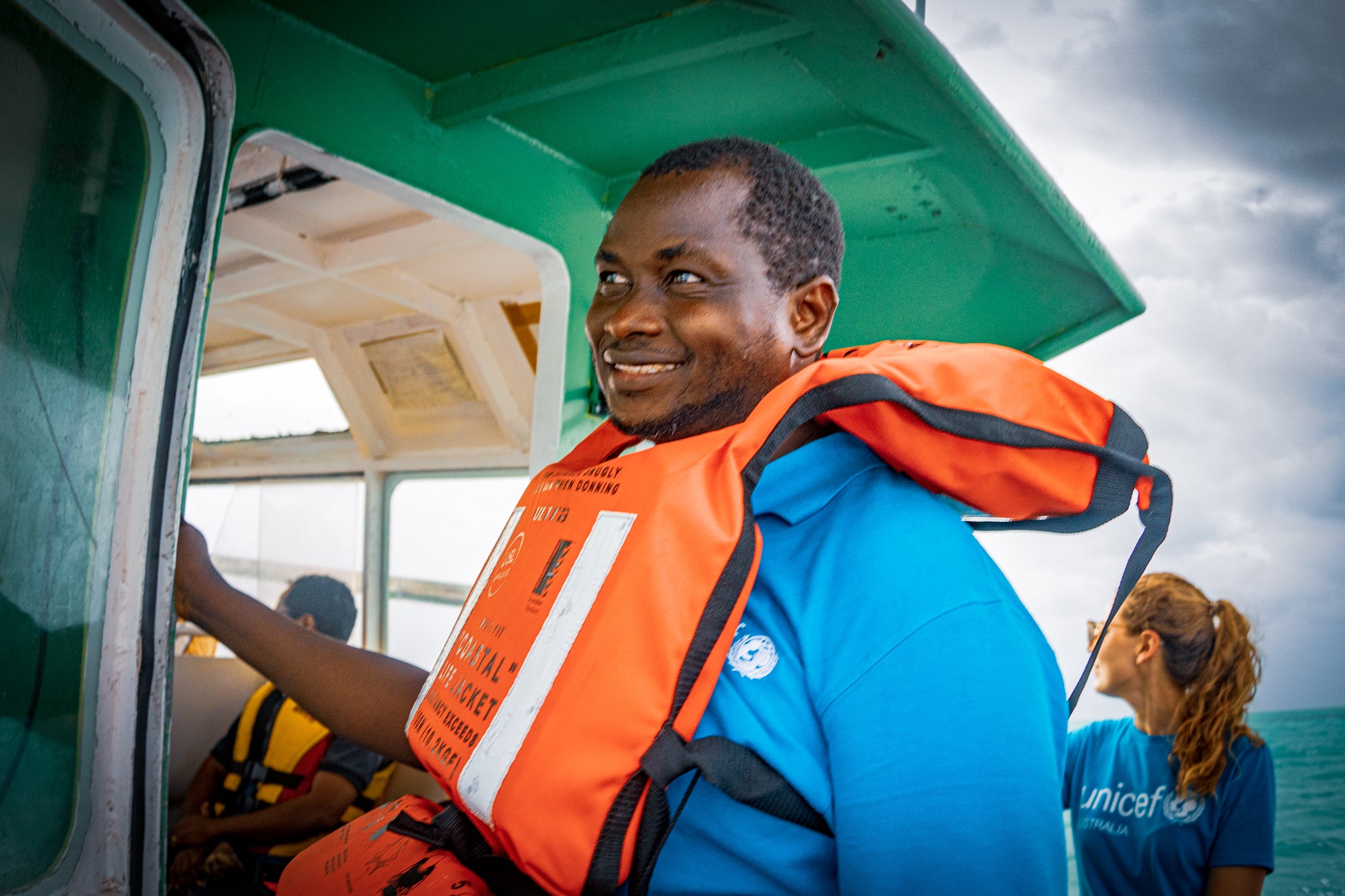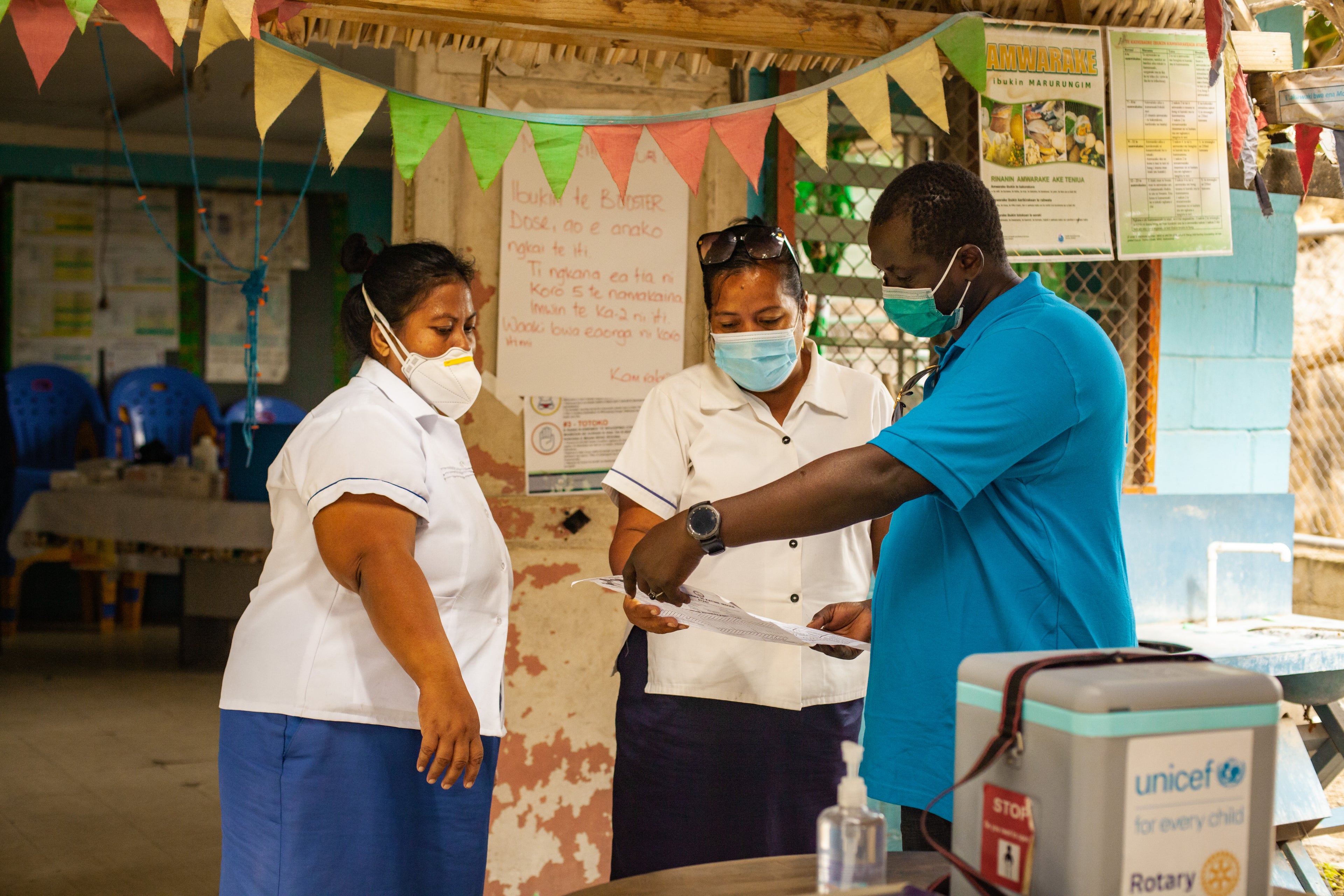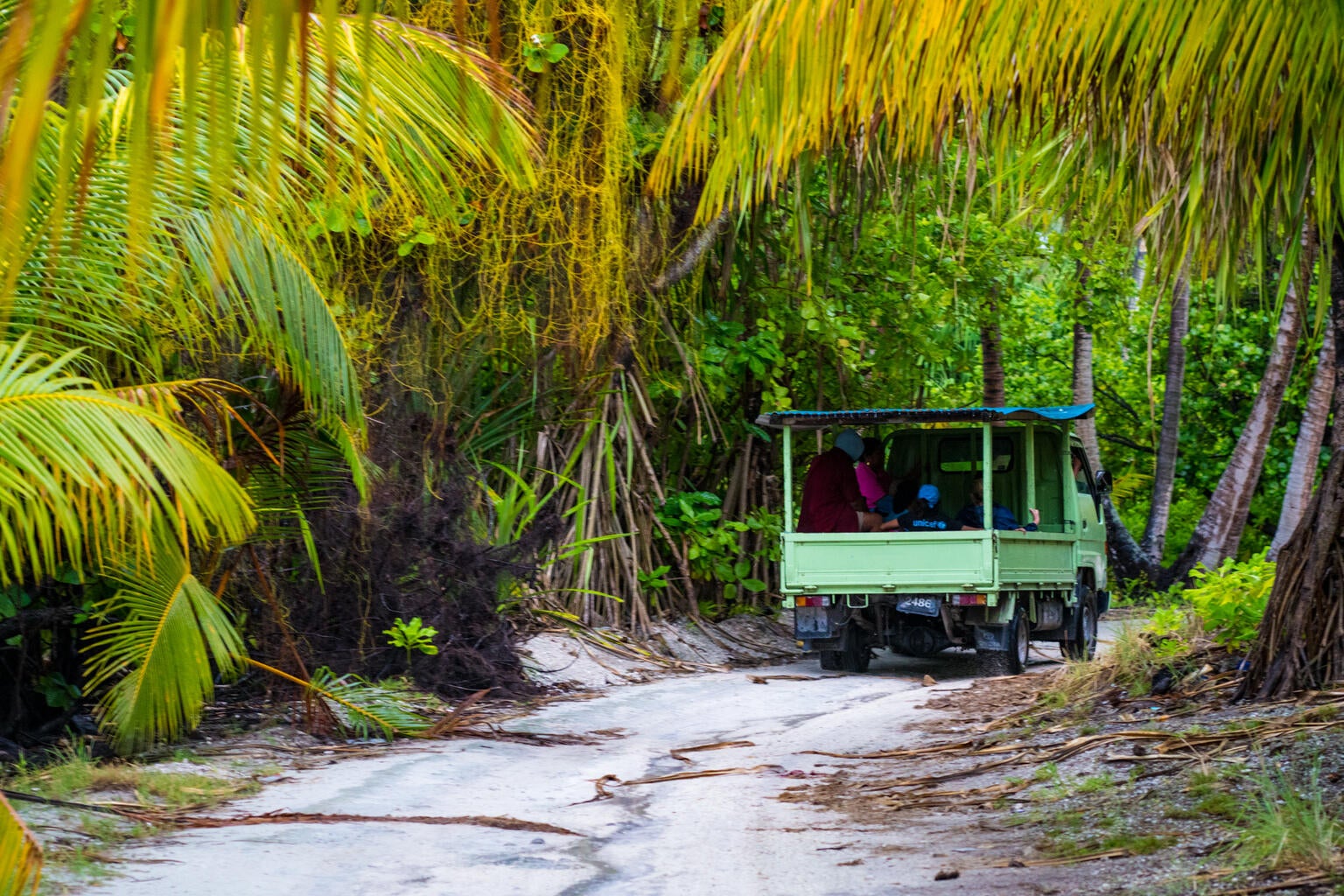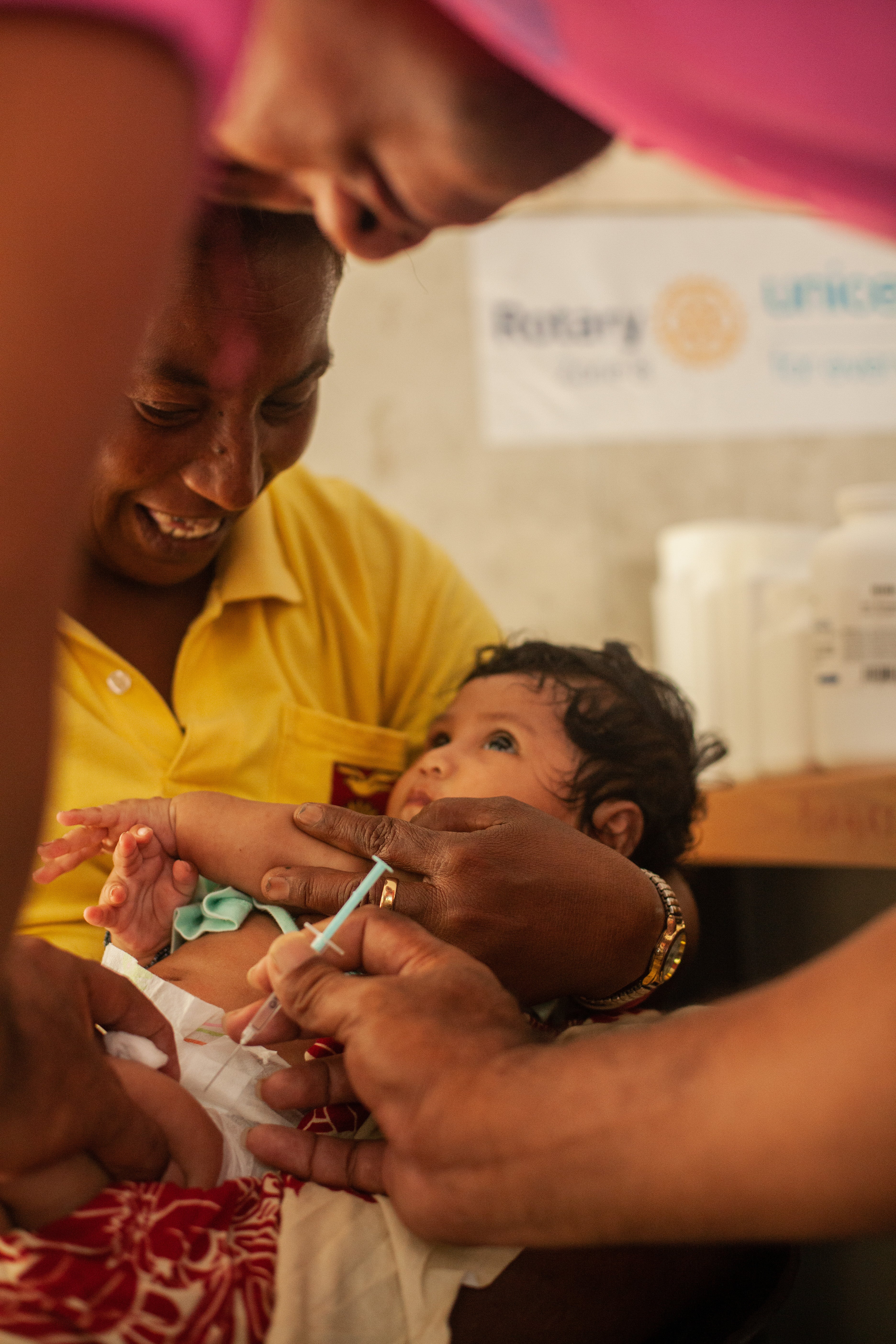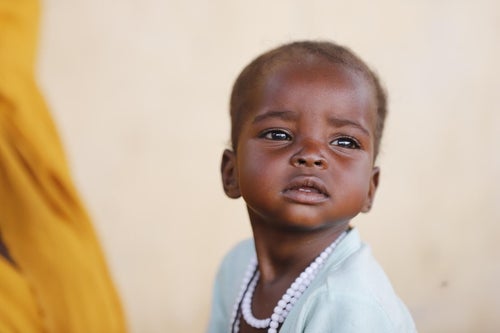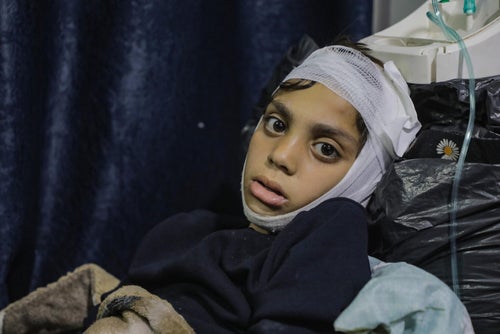How far would you go to make a child smile?
Humanitarian workers are at the heart of everything we achieve for children at UNICEF. They work in some of the world’s most remote and dangerous places. But no matter the challenges, we’re always there for children.
Find out what it takes to be one of UNICEF’s humanitarian heroes.
Would you rescue families from swaying buildings to ensure they reach safety?
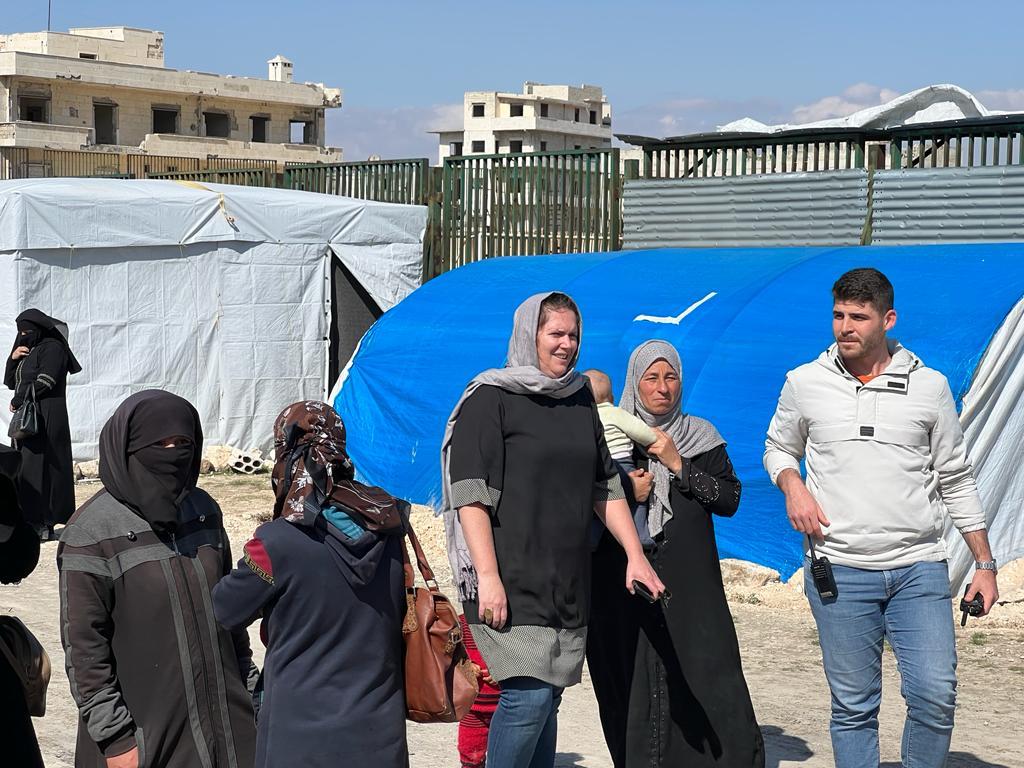
Nothing stopped our team, not even a magnitude 7.7 earthquake, from reaching millions of children and families with life-saving support when Türkiye and Syria were struck by disaster earlier this year.
Australian-born UNICEF emergency specialist, Peta Barns was one of the millions waking at 4 am in the morning to a nightmare in her home, in north-west Syria.
“I realised my whole building was moving and it was pretty terrifying. I had been in earthquakes before, but nothing like this.”
Rushing outside down flights of stairs, supporting her neighbours and their young children along the way, Peta witnessed the horror of the earthquake happening around her.
“It was complete devastation, especially in some of the areas that already been hit by 12 years of ongoing conflict. It was heartbreaking. You could see it in the kids' eyes, trauma upon trauma. But by 5 am, my colleagues and I were in the office responding to the earthquake.”
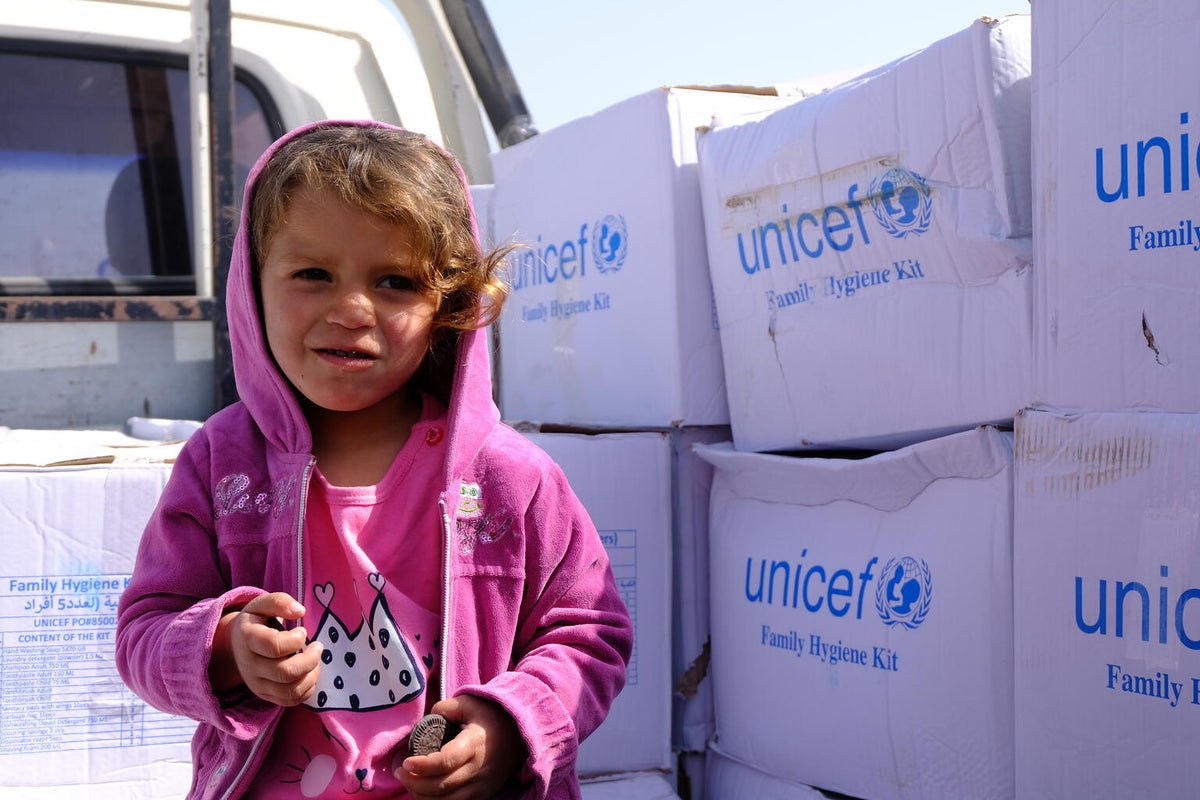
"Although the earthquakes may have faded from the headlines, it will take years to rebuild the damaged infrastructure and facilities, while the psychological impacts on children could continue beyond that. UNICEF is looking at how we can rehabilitate."
Australians have been there from the start of this emergency, for the 11 million children in need of humanitarian assistance. UNICEF delivered life-saving supplies within 48 hours and provided access to essential services like safe water, temporary education programs, medical care and psychosocial support. We continue to support the ongoing rehabilitation of children and families who are displaced or in need. UNICEF is working with local governments and community partners to strengthen systems and support children in regaining a sense of normalcy in their lives, to start looking towards a brighter future.
We won’t stop until we reach every child in need, no matter what
Would you cross oceans and jungles to keep children safe from life-threatening diseases?
Did you know that in some remote island communities across the Pacific, access to basic services such as health care and routine immunisations for children is a daily challenge? Around 1,700 children under five years old die from a preventable disease every year in the Pacific, with 80% dying before their first birthday.
In places like the island nation of Kiribati, local communities struggle with poor infrastructure, drought, rising sea levels, and limited access to proper nutritious food and clean drinking water.
To tackle these issues, local hero and UNICEF Immunisation Specialist, Ibrahim is working daily with local government and healthcare workers in Kiribati to support little ones in receiving free access to life-saving vaccinations.
Whether it be by plane, boat, truck or walking long distances on foot, Nigerian-born Ibrahim travels to some of the hardest-to-reach places, where children need support the most.
“We brave the heat and the rain – but at the end of the day, it is worth it as it is so important. But what keeps me going? It’s the i-Kiribati people! They are always happy and trying to do the best they can with the limited resources they have. The health workers are very committed and eager to learn new things that can ensure better health for their children and communities,” he says.
Ibrahim says his job is essential to improve equitable access to health care for families in the country, but importantly it is about working together with the community to strengthen existing health systems. As a result of this incredible teamwork, Kiribati has seen a remarkable 90% decrease in deaths of children under five in recent years.
"We work to improve health in the country, but importantly to help ensure that every child in Kiribati is safe and protected from vaccine preventable diseases."
UNICEF is working with our partners to ensure every child across the Pacific can survive, thrive and grow up to reach their full potential. At UNICEF, we do whatever it takes to deliver long-lasting impact for every child.
Would you work from a cold bunker to protect children forced to flee their homes?
Australian James Elder is no stranger to sheltering in bunkers or walking for hours in the freezing cold.
As a UNICEF spokesperson, James is on the frontlines of some of the world’s biggest emergencies to tell children’s stories.
Since the conflict started, James has spent time on the front lines in Ukraine and neighbouring countries where our teams are providing life-saving support to families forced to flee.
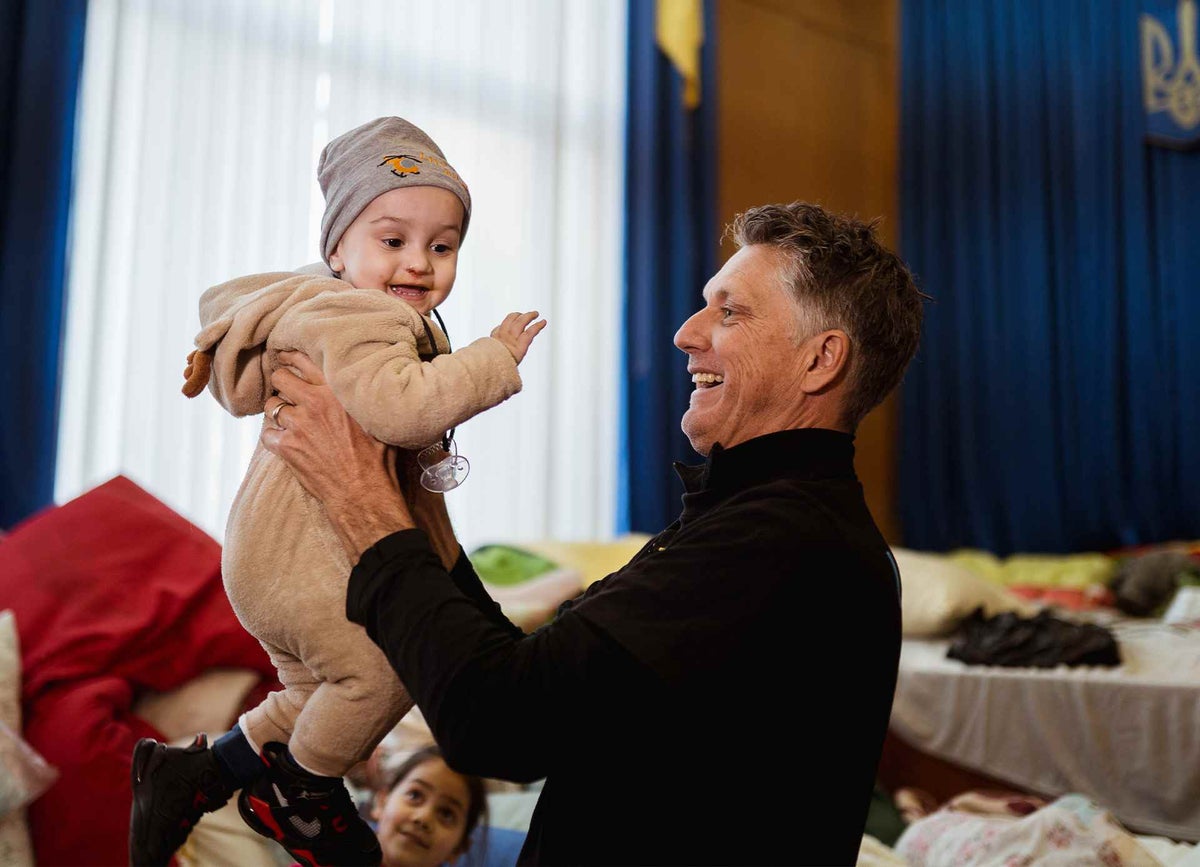
Last year, it was reported nearly two-thirds of Ukraine’s children were forced to leave their homes, with many families separated along their journey. Currently, 5.1 million children and families are internally displaced.
“I spent a lot of time at the train station in the border just talking to people trying to get a sense of what was going on,” says James, about his arrival in Ukraine at the beginning of the war.
Despite all the horror and heartbreak of millions of children still in need, our teams are on the ground from the very start of this war – from the frontlines to the borders. In 2023 alone, UNICEF has delivered life-saving supplies and services from health care, to clean water and education for over seven million children and families in Ukraine.
We are always there for children, no matter what. Learn more about our work in emergencies here.
How can you help us support children in need?
When emergency strikes, UNICEF can deliver life-saving help to children in just 48 hours in more than 190 countries. We’re always there for children, no matter what.
From emergencies to long-term solutions, UNICEF teams support children around the world by:
- Delivering essential medical supplies to prevent malnutrition and illness
- Helping new mothers give birth safely and protect their newborns
- Protecting children from deadly disease outbreaks
- Suppling clean and safe water to children in crisis
- Keeping children in school and safe from violence
- Providing psychosocial support for children and families
Donate to UNICEF Australia
Protect the rights and wellbeing of every child by donating to UNICEF Australia today.
Related articles
Stay up-to-date on UNICEF's work in Australia and around the world



